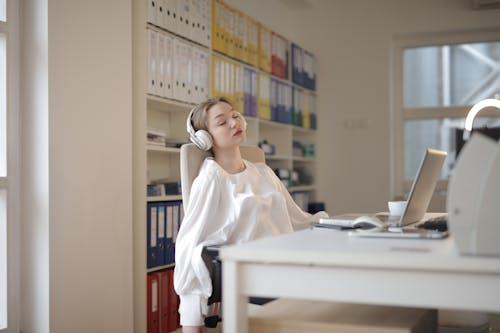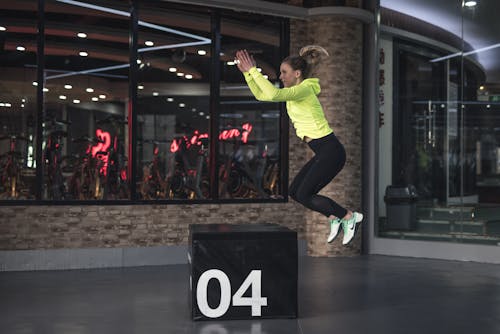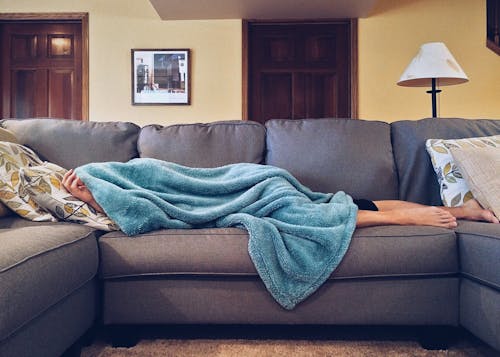
Why does winter fatigue happen to so many of us, and why are people more tired in the winter months? When the temperature drops and daylight hours decrease, mental alertness, focus and overall energy often diminish as well. During cold, dreary days of winter, you may find yourself longing for your bed or couch for most of the day. The phenomenon is surprisingly common.
There are numerous factors that may contribute to your lack of energy in winter. Some people feel the need to rest after eating too much heavy comfort food which is common in winter. Others have a hard time in winter due to lack of daylight. Some people stay inside due to the cold, and the lack of fresh air and lack of physical activity makes them have less energy. There are also people who have Seasonal Affective Disorder, which is an actual medical condition that causes depression and fatigue during winter. Understanding why you’re more likely to be tired in winter is the first step. After you figure out the cause or causes, you can start to find solutions.
Below, we’ll explore the reasons why you may be more tired in winter in more detail. We’ll also discuss how you can combat winter fatigue and regain some of your energy.
How Winter Affects Our Circadian Rhythm
Sleep is a complex natural process influenced by numerous hormones, health factors, and external stimulants. One particularly fundamental requirement for good sleeping patterns is a healthy circadian rhythm. One of the most important functions of circadian rhythm is the sleep-wake cycle. (Check out this article about circadian rhythm to learn more.)
Influenced primarily by exposure to natural light, your circadian rhythm dictates when you feel tired, energetic, or alert. Less exposure to sunlight during the winter months influences your internal clock, placing the human body into hibernation mode.
On a typical day, the brain relies on sunlight to determine when you should be awake, and when you should be asleep. This is a practice developed from the early days of humanity when we had to preserve our energy during the night for activity during the day.
When it’s light outside, the brain inhibits the production of melatonin (the sleep hormone) and increases cortisol to keep you alert. When the nights grow longer in winter, it becomes darker earlier, and the signals that were keeping melatonin at bay have now diminished quickly.
A difference in light exposure prompts your body to seek more sleep, and less time awake. Around half of all adults in one study reported sleeping up to 2 hours longer each night in winter.
The human brain also naturally prepares for bed later in the winter than it would during the summer, due to a lack of light cues. On average, people go to sleep 1.5 hours later in winter than they would in summer, and they tend to wake up later in addition.

Other Reasons You Have Less Energy in Winter
Numerous factors influence our everyday sleeping patterns. Some people naturally sleep less than others, due to differences in their genetics. The sleep profile you get as part of your CircleDNA report can help you figure out if there are genetic reasons for your fatigue. People who exercise a lot, or work in demanding jobs may also require additional sleep to recover from daily activities.
In winter, everyday aspects influencing your sleeping patterns can be either be enhanced or exacerbated by season-specific conditions, such as:
Holiday Stress
Periods of stress wear the body out, leading to a demand for additional sleep. Stress also disrupts the restfulness of the sleep you get, leading to feelings of sleep deprivation during the day.
Following a normal evening of sleep, your melatonin levels rise and cortisol levels (the stress hormone), fall, permitting balanced rest. People with significant stress, however, need to wait for additional cortisol to diminish before they can enjoy a good night’s sleep.
If you’re suffering from additional stress around the festive season, consider relaxation exercises, meditation, and other methods to help yourself relax.
Less Movement and More Sleep Results in Sluggishness
Interestingly, more sleep doesn’t always mean less fatigue. Too much sleep in winter can lead to overall sluggishness even while you’re awake. If you’re already getting your recommended 7 to 9 hours of sleep per evening, additional rest could create problems. Too much sleep can be just as bad for your health as too little, creating periods of grogginess and poor concentration.
Even taking a brief nap in the middle of the day can make your sleeping patterns worse. While it might be tempting to rest after a large turkey dinner, naps can disrupt your schedule, and throw your circadian rhythm into further turmoil. Maintain your typical sleeping schedule, even if you’re not at work during the holidays.
Your Winter Diet Could be Causing Drowsiness
During the winter, we tend to consume heavier foods with higher amounts of carbohydrates and fats. Consider how your diet changes during the festive season. The average person gains approximately 1 pound during the winter, thanks to indulgent meals throughout the holidays.
Sugary and fatty foods might be part of your holiday traditions, but they also lower energy levels and increase sleepiness, while disrupting your sleeping patterns. Alcohol consumption is a problem too. While alcohol initially causes sleepiness, it does disrupt sleep overall, causing more tiredness during the day. Work on keeping your diet as healthy and balanced as possible, and drink alcohol only in moderation to preserve your sleep.
Check out this article on how to maintain healthy eating during winter holidays. This might help you regain some energy.

Less Physical Activity Depletes Your Energy and Mood
Winter months often wreak havoc on a successful exercise routine that was in place in warmer months. Rain, snow, cold and wind make exercises like hiking and running less appealing. If you’re spending more time hibernating and feeling fatigued, you may also have less motivation to work out.
Regular exercise can help maintain healthier sleeping patterns. Exercise helps tire your body, which assists in initiating sleep. Exercising in the morning can also increase your energy levels and expose you to crucial sunlight for your circadian rhythm.
In general, exercising regularly (all year long) helps you have more mental and physical energy. Check out these 5 outdoor winter workouts to try this winter to ensure you stay active.
Cranking Up the Heat Closing Windows Makes You Feel Tired
During the winter, colder temperatures push people to make their living environments warmer. You may crank up the heat every day, but these warming mechanisms could make you feel more tired.
You may also be closing your windows in the winter, and the lack of airflow or lack of fresh air will do the opposite of invigorating you.
Remember that your circadian rhythm regulates your body temperature throughout the day. Your body temperature lowers at night to facilitate better sleep. By heating your room and using more blankets, you force your body to work harder to stay cool. Even if you’re not warm enough to wake up, the extra heat could disrupt your sleeping patterns, making you more tired the next day. Keep your bedroom between 60- and 67-degrees Fahrenheit for the best night’s sleep.

If Cold Weather Makes You Sick, You May Need More Sleep
If you tend to get sick during cold-weather months, your body may need more rest and sleep to recover from illness.
Illnesses such as the common cold and flu are more common in winter. People tend to spend more time indoors with their groups of friends with windows closed, which allows viruses to spread. When you fall sick, your body requires more sleep to recuperate and activate your immune system.
If you tend to get sick during the winter, getting more sleep may be an important part of maintaining good health during the holidays. Notably, getting the right amount of sleep can reduce your susceptibility to the common cold. Avoid interacting with people you know are sick, and keep windows open to allow for air circulation where possible.
Seasonal Affective Disorder Causes Low Energy
Seasonal Affective Disorder (SAD) could be the reason you feel tired and low in the winter, but you’d have to talk to your doctor about whether or not it’s likely you have this health condition. Approximately 6% of people worldwide have this condition for four to five months of the year (During colder, darker months). Symptoms include depression, chronic fatigue, low energy, and weight gain.
You may have a milder form of this condition known as the “winter blues”. Feelings of depression and sadness are more common in the winter, and can often prompt us to sleep more and socialize less during the winter months.
If you feel your tiredness is related to a mood disorder, or an issue caused by your mental health, speak to your doctor. Determining what causes your sleepiness and changes in mood will help you to discover the best possible treatment.
If your mood is fine but your energy is low, you may simply need to exercise more regularly, get more fresh air, and eat better.







Comments are closed.